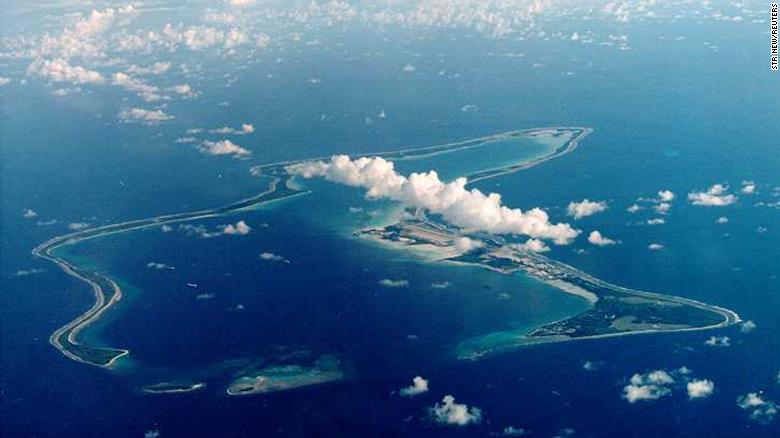Court orders Britain to ‘rapidly’ return an island to its former African colony. The UK must return the Chagos Islands to Mauritius as “rapidly as possible,”
The United Nation’s top court ruled Monday, saying that Britain’s continued occupation of the Indian Ocean archipelago is illegal.
The islands, which are home to the strategic U.S. military base, Diego Garcia, were separated from the former British territory of Mauritius during decolonization in 1968.
However, The International Court of Justice (ICJ) has ruled that the separation was illegal under international law.
Also, it had not been based on a “free and genuine expression of the people concerned”.
“This continued administration constitutes a wrongful act,” said the president of the ICJ, Abdulqawi Ahmed Yusuf while delivering judgement.
“The UK has an obligation to bring to an end its administration of the Chagos archipelago as rapidly as possible.
Moreso, all member states must co-operate with the United Nations to complete the decolonization of Mauritius.”

Mauritius was a British colony from 1810 until 1968, when it achieved independence and became a republic.
Furthermore, Ahead of this independence, the UK held talks with the U.S. on the “strategic use of certain small, British-owned islands in the Indian Ocean” for defense purposes, the court said.
“During these talks, the United States expressed an interest in establishing a military communication facility on Diego Garcia,” the court added.
During the decolonization process, London decided that the Chagos archipelago would be separated from the rest of Mauritius.
And incorporated into a separate colony, referred to as the British Indian Ocean Territory, according to a CNN report.
The separation, according to Mauritius in a submission to the court, was carried out “without any regard to the will of the people of Mauritius, including those who lived in the Chagos Archipelago.”
Mauritius had argued in court last year that it was coerced into giving up the Chagos Islands.
According to its lawyers, the separation was at variance with a UN resolution passed in 1960 which banned the breakup of colonies before independence.
As part of the separation process, the entire population of Chagos Islands (about 1,500) were deported and never allowed to return home.
The island was leased to the U.S. for the airbase in 1971.
The airbase serves as a landing spot for bombers that fly missions across Asia, including over the South China Sea, said a CNN report
In the 1980s, the UK paid an estimated $5.2 million to more than 1,300 evicted islanders.
The condition was to sign or place a thumbprint on a form renouncing their right to return to the Chagos archipelago, the report added.
Many of these natives can now be found in several countries including Seychelles, Mauritius and the United Kingdom.
Following the ICJ ruling, the UN general assembly would now have to deal with the question of the resettlement of the Chagos Islanders who have been expelled.
Furthermore, The ruling could also force Washington to negotiate with Mauritius over the future of the Diego Garcia base, according to analysts
The majority decision by the court is, however, advisory, as the matter of who holds sovereignty over the Islands will now return to the United Nations General Assembly for debate.
A Foreign Office spokesperson said: “This is an advisory opinion, not a judgment.
Of course, we will look at the detail of it carefully.
The defence facilities on the British Indian Ocean Territory help to protect people here in Britain and around the world from terrorist threats, organised crime and piracy.”
The Mauritian government, which embraced the ruling, said that it was a “historic moment in efforts to bring colonialism to an end and to promote human rights, self-determination and the international rule of law”.
Namira Negm, who represented the African Union in the court case, said: “The full decolonization of Mauritius, and of Africa, is long overdue.”
“The ICJ made it clear that this must be accomplished today and not tomorrow. Only then the Africans can be free and the continent can aspire to live free of colonialism.”










